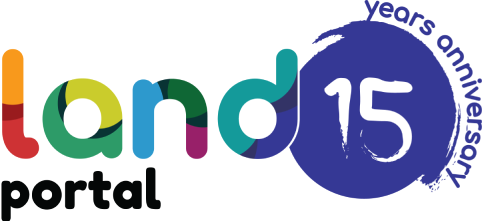Search results
Showing items 1 through 9 of 12443.-
Library ResourceJanuary, 2021France
-
Library ResourceJanuary, 2021Netherlands
Moving towards net zero GHG emissions by 2050 is likely a pre-condition for avoiding global warming higher than 1.5ËšC by the end of the century. The land-use and agriculture sector can provide close to one third of this global commitment while ensuring food security, farmer resilience, and sustainable development. Protecting soil organic carbon (SOC) and sequestering carbon in organic matter-depleted soils might cost-effectively provide close to 15% of this target and support another 15% from large-scale restoration and implementation of best agronomic practices.
-
Library ResourceJanuary, 2021Netherlands
Link to the full toolkit: https://bit.ly/Foresight_Training_Toolkit
The Foresight for Future Planning Training Series is a four-part training series for applying foresight to address climate change impacts and uncertainties. The training series equips users to practically apply a range of foresight tools and methods for innovative research in development prioritisation, specifically assisting in strateg ic planning and policy formulation for climate-relevant transformation in agriculture and food systems. -
Library ResourceJanuary, 2020Netherlands
Climate-smart agriculture (CSA) makes financial sense for businesses. Governments are increasingly holding the private sector responsible for their role in climate change impacts. Extreme weather events are incredibly costly for businesses. This is particularly true in agriculture, which relies heavily on favorable weather conditions. CSA practices and technologies are central to the transformative changes necessary to maintain the stability—and profitability—of the food system in the face of climate change.
-
Library ResourceJanuary, 2021Netherlands
Starting from 2010, the CGIAR Research Program on Climate Change, Agriculture and Food Security (CCAFS) scenarios team has led several future scenario-guided policy formulation processes under the FP1 Flagship Priorities and Policies for CSA. These scenario-based processes combined stakeholders’ workshops with quantitative modelling to guide planning for food and nutrition secure futures under changing climatic conditions. While earlier scenarios focused on the regional level, the scope have since expanded to encompass multiple regional and national policy development processes.
-
Library ResourceJanuary, 2022Italy
Trees in dryland forests and wooded areas provide key ecosystem services such as animal feed, timber, fruits and, regulation of soil and water cycles. Equally, the presence of livestock in dryland woody areas can also play an important role in the local ecosystem; not only are they a source of income for local communities, but they also help vegetation and mobilise stored biomass.
-
Library ResourceJanuary, 2022Italy
Trees in dryland forests and wooded areas provide key ecosystem services such as animal feed, timber, fruits and, regulation of soil and water cycles. Equally, the presence of livestock in dryland woody areas can also play an important role in the local ecosystem; not only are they a source of income for local communities, but they also help vegetation and mobilise stored biomass.
-
Library ResourceJanuary, 2020Netherlands
SADC Future project supplementary material: Systems analysis and sectoral linkages impacting climate resilient development in the SADC region.
-
Library ResourceJanuary, 2020Netherlands
The SADC Futures project has developed a range of foresight training materials. The SADC Futures Foresight Training Toolkit forms part of this knowledge series and presents content that was given during the SADC Futures webinar series, a six-part virtual webinar series and facilitated training.
-
Library ResourceJanuary, 2020Netherlands
Even though drought tolerant maize (DTM) varieties have proven yield stabilization benefits, the adoptions remains low. In this research, we explore the risk spectrum that male and female smallholder farmers face in agriculture and the gendered barriers and drivers to adoption of drought tolerant maize varieties. The study appraises how communities in four district in Uganda are responding to observed changes and managing agricultural risks.
Land Library Search
Through our robust search engine, you can search for any item of the over 64,800 highly curated resources in the Land Library.
If you would like to find an overview of what is possible, feel free to peruse the Search Guide.

